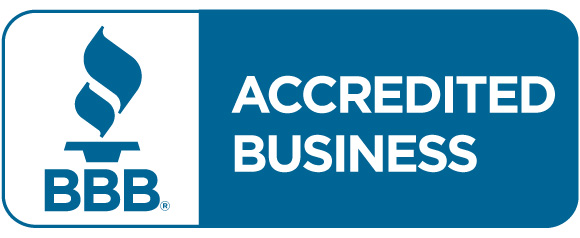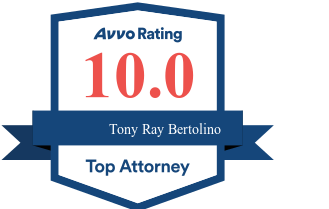
- What is the Texas Funeral Service Commission (TFSC)?
- How long do people have to file a complaint against a funeral director?
- What kinds of complaints does the TFSC investigate?
- How does the TFSC handle a complaint once it receives it?
- How do I resolve a complaint with TFSC?
- Am I entitled to a hearing on the allegations against me in a complaint before TFSC?
- What sanctions can I receive in disciplinary proceedings before the TFSC?
What is the Texas Funeral Service Commission (TFSC)?
The TFSC is the state agency that protects the public from deceptive practices in the funeral industry. This agency’s responsibilities include setting standards for funeral, cremation, and burial arrangements and educating consumers about those standards. The TFSC also licenses and handles complaints about funeral directors, embalmers, funeral homes, embalming facilities, and crematories. The agency also provides enforcement services against licensed individuals and entities to ensure they meet all relevant legal standards.
How long do people have to file a complaint against a funeral director?
Generally, individuals must file complaints against funeral directors and service providers within two years of the date of the incident. The Executive Director of the TFSC may waive this two-year deadline for good cause shown by the complainant. However, funeral homes must keep records only for two years, so investigating and taking enforcement action about an incident over two years old can be much more challenging.
What kinds of complaints does the TFSC investigate?
While the TFSC investigates complaints about violating many of the rules and laws governing funeral directors, funeral homes, embalmers, and crematoriums, other state agencies also regulate certain aspects of the death care industry. For instance, the Texas Department of Banking (TDB) oversees the prepaid funeral care industry and perpetual care cemeteries. Likewise, the Texas Department of Insurance (TDI) monitors and regulates annuity and insurance contracts concerning prepaid funeral contracts.
As a result, when TFSC receives a complaint, it first determines whether it involves allegations over which it has jurisdiction or if the TDB or TDI have jurisdiction over it. TFSC will forward relevant complaints to TDB and/or TDI if appropriate. Otherwise, if the complaint alleges a violation of a law or rule that applies to funeral service providers, TFSC retains the complaint for review.
How does the TFSC handle a complaint once it receives it?
Once the TFSC determines its jurisdiction over the complaint, it will review it to determine whether a violation has occurred. If the TFSC finds no evidence of violating a rule or law governing funeral service providers, it will close the complaint. However, if TFSC finds evidence of a violation, it will contact the licensee about the complaint and request initial documentation. The license then typically has 15 days to submit a response to TFSC concerning the complaint. Additionally, TFSC will conduct any other necessary investigative work and gather pertinent evidence.
After completing its investigation, TFSC will prepare an Investigative Report (IR), which summarizes the facts and evidence of the alleged violation. The IR also contains an administrative penalty or sanction for the identified violation(s). TFSC provides the IR to the licensee for review.
How do I resolve a complaint with TFSC?
Once TFSC issues the investigative report to the licensee, they have 30 days to respond. They can choose one of the following options:
- Accept the IR and recommended penalty/sanction and sign an Agreed Order with TFSC, which will resolve and close out the complaint; or
- Request a settlement through formal negotiations, such as through alternative dispute resolution or informal negotiations with TFSC. Through these negotiations, you might be able to reach a lesser sanction or no sanction at all. Any settlement you reach can result in you signing an Agreed Order to resolve the case.
However, ignoring or failing to respond to the complaint from TFSC will not have the resolution you want. A failure to respond to the IR within 30 days waives your right to a hearing, thus subjecting you to whatever sanction the IR proposes. If you fail to pay the penalty, TFSC will suspend your license for six months.
Am I entitled to a hearing on the allegations against me in a complaint before TFSC?
If you cannot resolve your complaint through negotiations or an otherwise agreed-upon disposition, TFSC will send the case for a hearing to the State Office of Administrative Hearings (SOAH). SOAH will assign an administrative law judge (ALJ) to your case, who will conduct an administrative hearing. After hearing evidence from both sides during the hearing, the ALJ will issue a proposal for decision (PFD) to TFSC. TFSC commissioners can review, accept, or modify the recommended disposition in the PFD and then will notify the licensee of its final action or decision in the case.
At that point, a licensee can accept the final action of the TFSC and sign an agreed order to resolve the complaint. Otherwise, they can continue challenging the TFSC’s final action by filing a petition for judicial review through the court.
What sanctions can I receive in disciplinary proceedings before the TFSC?
TFSC follows an Administrative Penalties and Sanctions Schedule to determine the appropriate sanctions for a violation. This schedule divides the violations into four classes, with Class A violations being the least serious and Class D violations being the most serious. Each class of violation carries a range of penalties based on the severity of the violation and a licensee’s history of previous violations, as follows:
- Class A – $250 – $5,000 and/or sanction
- Class B – $500 – $5,000 and/or sanction
- Class C – $1,000 – $5,000 and/or sanction
- Class D – Up to $5,000 and/or sanction to $5,000 and license revocation
Get the Advice You Need About Your Funeral Director License
When you face a disciplinary complaint concerning your funeral director’s license, you risk significant sanctions that could adversely affect your career. Don’t try to handle such a critical situation on your own. The funeral director license defense lawyers at Bertolino LLP can examine your circumstances and help you determine the most effective means of protecting your license. Call us today at (512) 980-3751 or get more information about us online.
Call or text (512) 476-5757 or complete a Case Evaluation form















